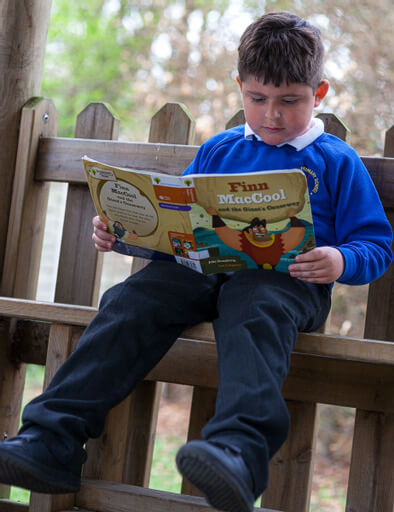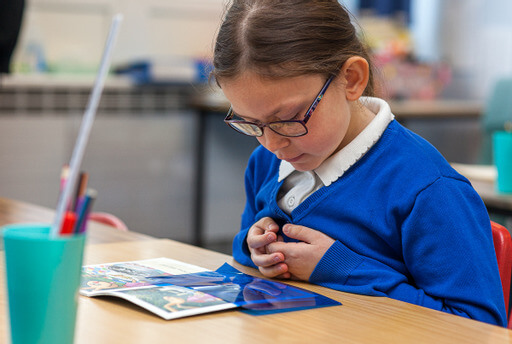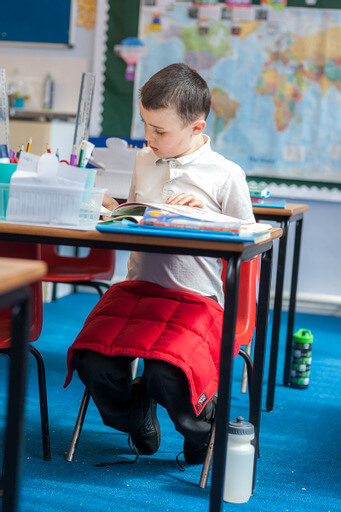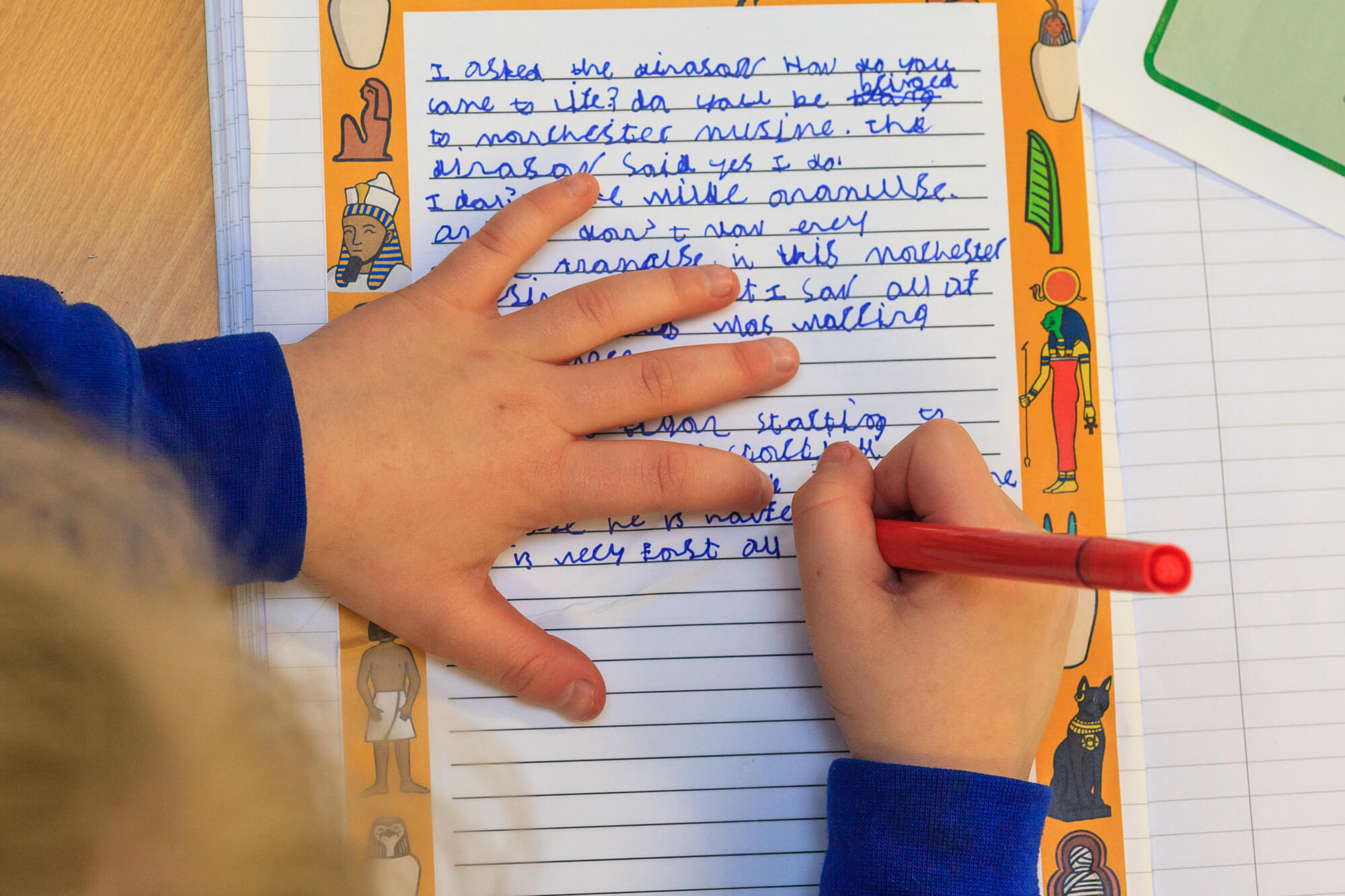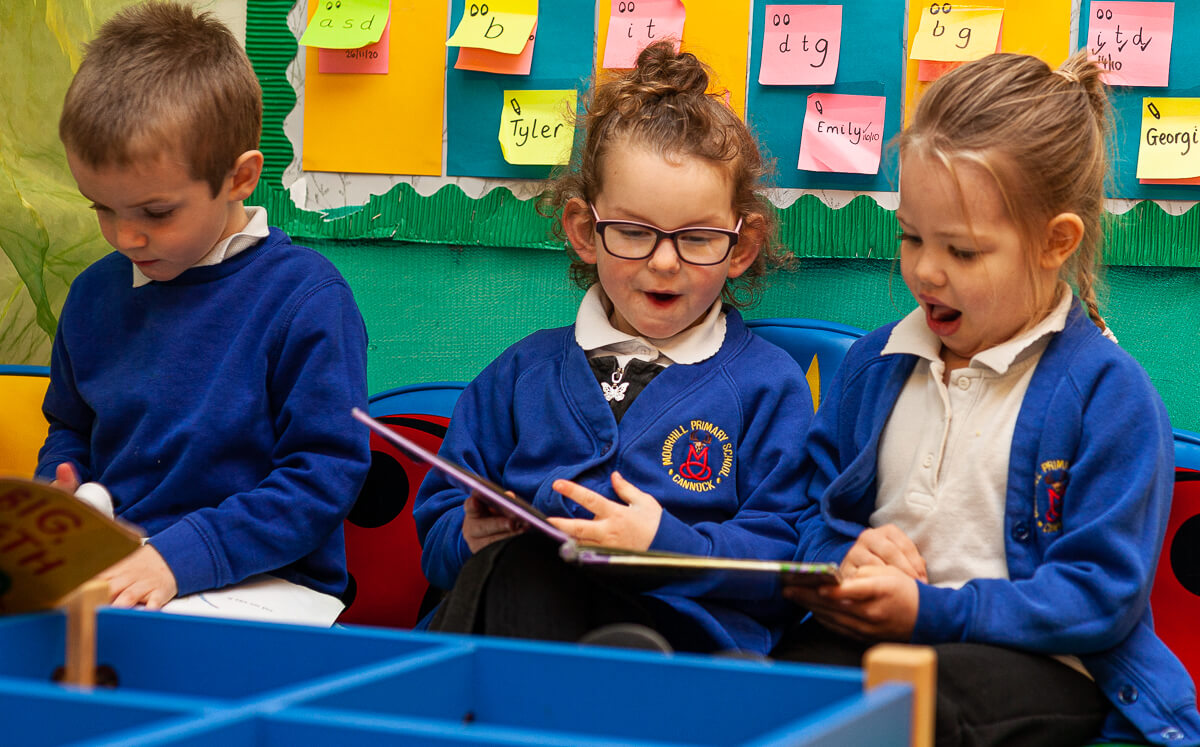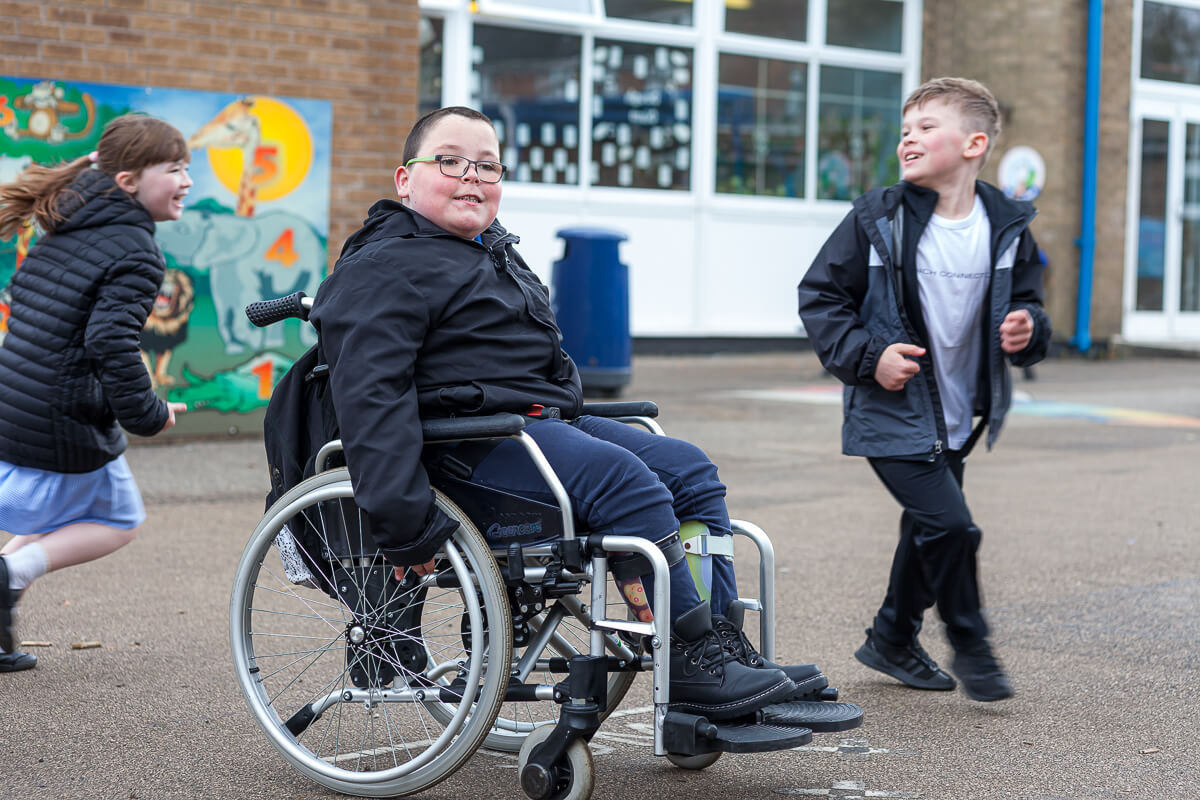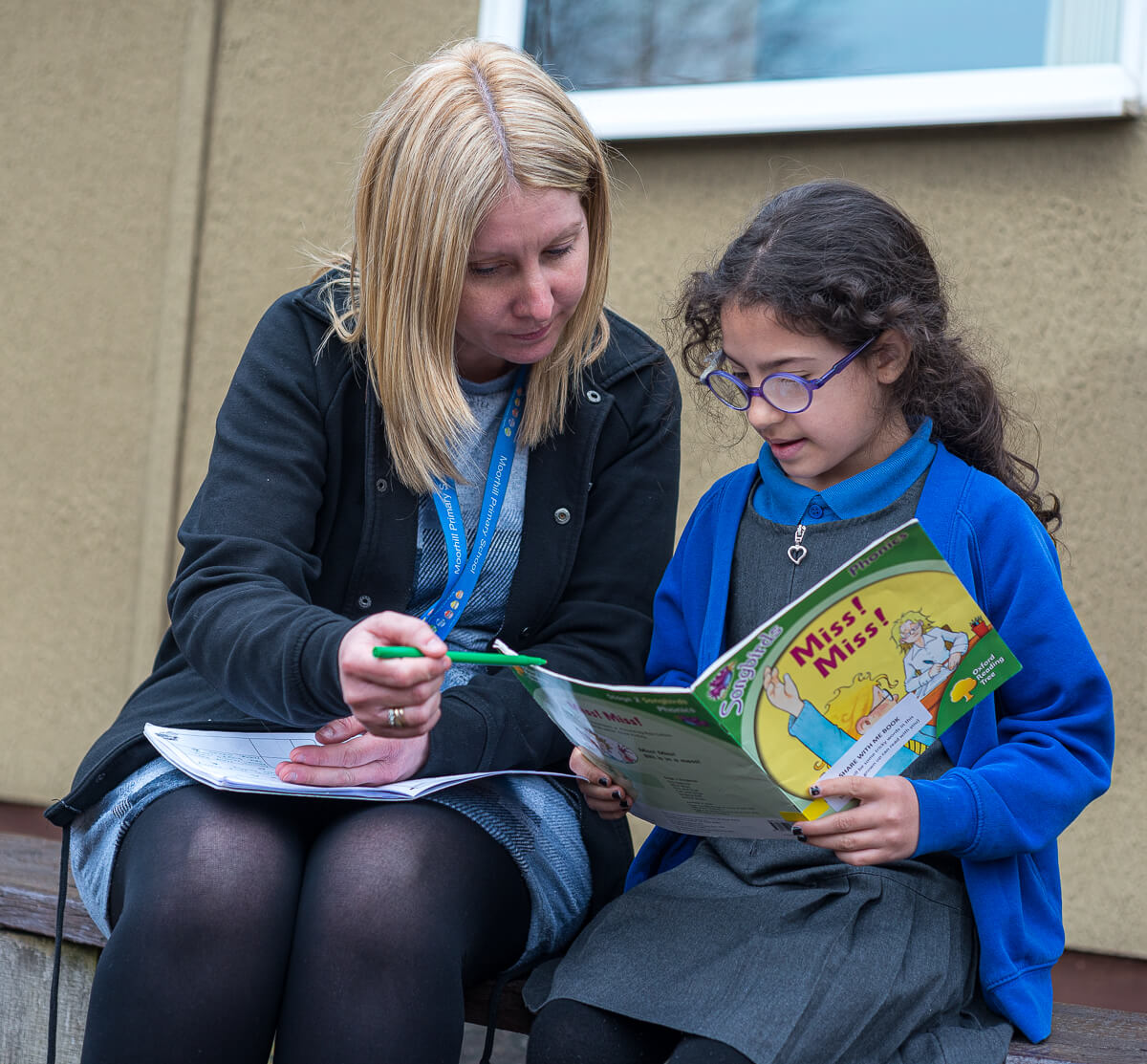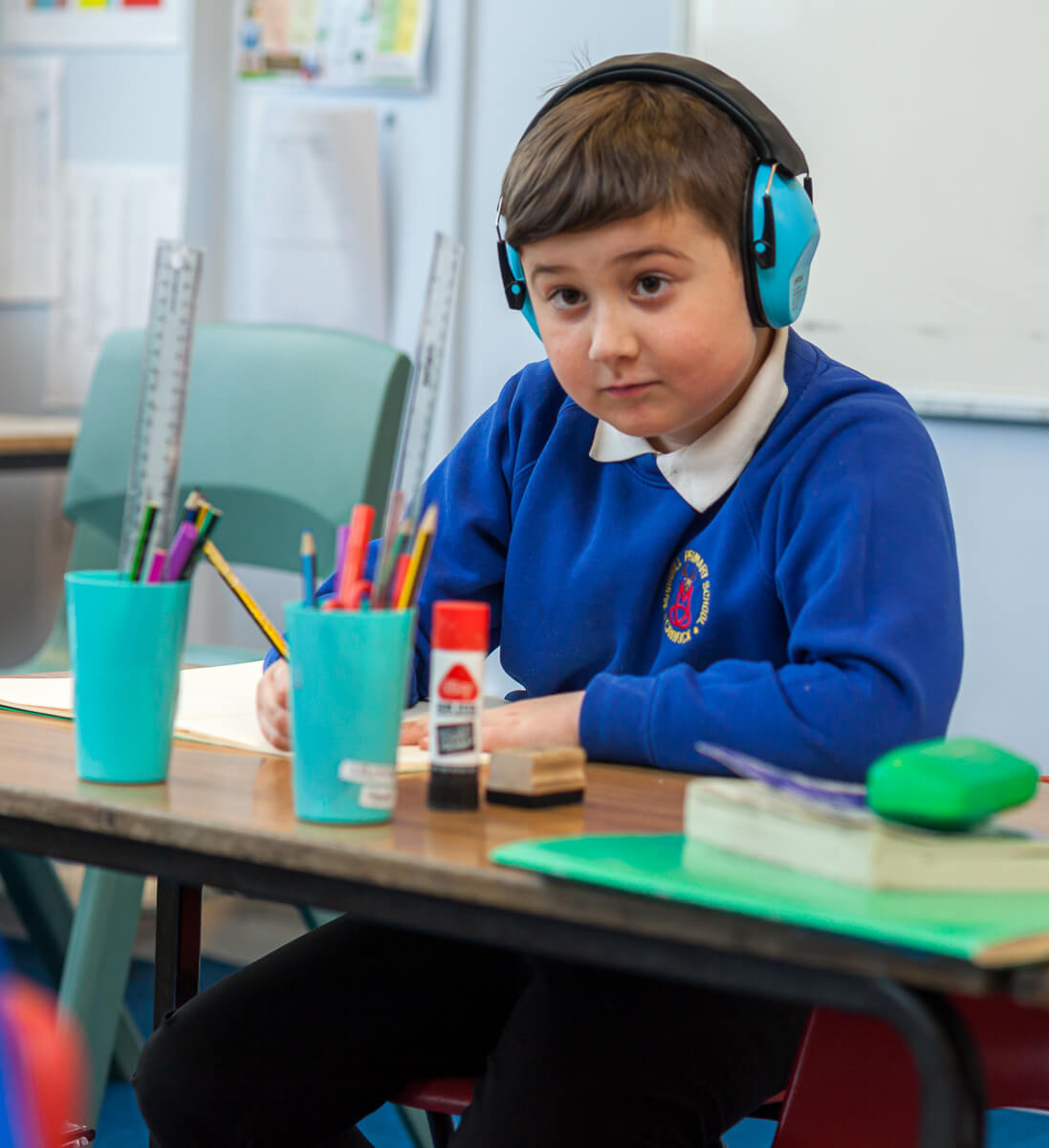Mrs. J. Liley is our SENCO (Special Educational Needs Coordinator).
If you have any concerns about you child's educational need, please contact the school on 01543 227185 (option 2) or email jenny.liley@moorhill.set.org
Moorhill Primary School is an inclusive school. We believe that every child must access high quality learning and make good or better progress in order to equip himself/herself with the skills for high school and adulthood. Every child is an individual and has the right to have all needs met, in order to achieve his/her potential. Pupils with barriers to their learning are the shared responsibility of all staff, who must meet everyone's needs. At Moorhill we value the individual - inclusion is part of our culture. All pupils are encouraged to take an active role in school life.
We recognise that any pupil may experience difficulties in school at some stage and that there are several factors which could influence this, including educational, social, environmental and medical factors. Once difficulties have been identified, provision will be adapted and adjustments made in order to meet the child's needs.
Our School Local Offer explains the support that we provide for SEND (Special Educational Need and Disability) pupils and their parents.
SEN School Local Offer
1. How does the school know if a child needs additional help?
Prior to entry into Reception class, staff at Moorhill work closely with local pre-schools, to ensure information about each child is shared. This enables us to ensure that effective transition arrangements and support are in place from the start. During the Summer Term, our SENCO (Special Educational Needs Coordinator) meets with parents to discuss specific needs.
For pupils who transfer to Moorhill mid-term, information is passed on from previous schools and meetings with parents, the Head of School, and the SENCO are arranged as appropriate to the need.
Pupils who experience difficulties whilst at Moorhill, who were not identified as having additional needs on entry to the school, will be referred to the SENCO, via an ‘Cause for Concern’ form.
2. What should I do if I think my child may have special educational need?
If you are concerned about your child's learning needs, it is important in the first instance to speak to the class teacher, who will discuss your child's learning with you and arrange a meeting with the SENCO.
3. How will the school support my child?
Class Teacher
The class teacher is responsible for:
- 'Knowing' his/her pupils, ensuring that assessment data, as well as daily assessments made in lessons, are used to inform planning.
- Planning a suitable curriculum, adapted to meet the needs of all pupils.
- Monitoring the progress of each child and discussing this with you, as well as explaining your child's learning in relation to age related expectations.
- Taking responsibility for the progress of each child in the class including rigorous intervention to address barriers to learning, with the aim of getting pupils ‘on track’ with their learning.
- Identifying possible SEND and make a referral to the SENCO.
- Ensuring that interventions are in place and that they impact on your child's learning.
- Meeting frequently with Teaching Assistants delivering a specific learning programme as an intervention.
- Assessing the learning of pupils in all lessons, as well as organising more formal assessments such as:
Phonics screening - NTS assessments
- Reading Plus assessments
SENCO
The class teacher will discuss your child's needs with the SENCO, who is responsible for:
- Ensuring the SEND policy is in place and used consistently in school.
- Liaising with outside agencies, for example the Speech and Language Therapy Service, the Educational Psychologist, Behaviour Support and Autism Inclusion Team.
- Working closely with teachers to produce and review a Pupil Profile for your child.
- Providing support and training for staff, so that they can help your child achieve his/her full potential.
- Identifying which interventions would benefit your child, ensuring they are in place and monitoring the impact on your child's learning.
- Monitoring the progress of pupils and analysing tracking data.
- Meeting with pupils to identify the impact of any additional support and to help them verbalise their views with regards to learning.
Academy Council
The Academy Council will:
- Monitor the SEND Policy.
- Ensure that the SEND policy is available to parents.
- Ensure that appropriate, effective and well-resourced provision is in place, to meet the needs of all pupils.
- Nominate a link governor to liaise with the SENCO and to monitor provision.
- Monitor the impact of interventions.
Leadership Team
The Leadership Team (Executive Head teacher, Head of School, Leaders of Learning) will:
- Set objectives in the School Objective Plan which include provisions for pupils with SEND.
- Work with the SENCO to establish staff training needs.
- Monitor the impact provision has on raising attainment.
- Ensuring the Academy Council has up to date information relating to SEND provision and the progress of pupils.
3. How will the school support my child?
Class Teacher
The class teacher is responsible for:
- 'Knowing' his/her pupils, ensuring that assessment data, as well as daily assessments made in lessons, are used to inform planning.
- Planning a suitable curriculum, differentiated to meet the needs of all pupils.
- Monitoring the progress of each child and discussing this with you, as well as explaining your child's learning in relation to age related expectations.
- Taking responsibility for the progress of each child in the class including rigorous intervention to address barriers to learning, with the aim of getting pupils ‘on track’ with their learning.
- Identifying possible SEND and make a referral to the SENCO via Cause for Concern form.
- Ensuring that interventions are in place and that they impact on your child's learning.
- Meeting frequently with Teaching Assistants delivering a specific learning programme as an intervention.
- Assessing the learning of pupils in all lessons, as well as organising more formal assessments such as:
Phonics and Reading Plus - to assess decoding and comprehension competence
Progress in Maths
SENCO
The class teacher will discuss your child's needs with the SENCO, who is responsible for:
- Ensuring the SEND policy is in place and used consistently in school.
- Liaising with outside agencies, for example the Speech and Language Therapy Service, the Educational Psychologist, Behaviour Support and Autism Inclusion Team.
- Working closely with teachers to produce and review a Pupil Profile for your child.
- Providing support and training for staff, so that they can help your child achieve his/her full potential.
- Identifying which interventions would benefit your child, ensuring they are in place and monitoring the impact on your child's learning.
- Monitoring the progress of pupils and analysing tracking data.
- Meeting with pupils to identify the impact of any additional support and to help them verbalise their views with regards to learning.
Academy Council
The Academy Council will:
- Monitor the SEND Policy through the school's self-review procedures.
- Ensure that the SEND policy is available to parents.
- Ensure that appropriate, effective and well-resourced provision is in place, to meet the needs of all pupils.
- Nominate a link governor to liaise with the SENCO and to monitor provision.
- Monitor the impact of interventions.
Leadership Team
The Leadership Team (Executive Head teacher, Head of School, Leaders of Learning) will:
- Set objectives in the Self Evaluation Form which include provisions for pupils with SEND.
- Work with the SENCO to establish staff training needs.
- Monitor the impact provision has on raising attainment.
- Ensuring the Academy Council has up to date information relating to SEND provision and the progress of pupils.
4. What interventions or strategies are in place to support children with SEND?
Social Skills programmes/support, including strategies to enhance self-esteem:
- Mentoring sessions with our Learning Mentor.
- Targeted lunch and break interventions on the playground, to involve pupils in active and collaborative play
- Pivotal Approach
- ELSA (Emotional Literacy Support)
Access to a supportive environment, which promotes independent learning:
- Visual timetables displayed in each classroom, with individual timetables where necessary.
- Clearly labelled resources, to which pupils have easy access.
- Dyslexia friendly displays and resources.
- Solution-focused approach across the school (non-confrontational).
- Regular access to i-pads.
- Emotion Cards
- Provision of specialised equipment where needed.
- Well-resourced lessons, to support visual learning and conceptual understanding.
- An emphasis on our Antler values of Ambition, Never Giving Up, Team Work, Love of Learning, Equality and Fairness, Respect and Service. Our school motto is Believe and Achieve.
- Fully accessible sites, with ramps and a lift on our Pye Green Road Site. For further details, please read our Disability and Accessibility Plan in our Policies section.
5. What are the strategies or programmes to support speech and language?
- Speech and language demonstration sessions with a trained teaching assistant.
- Individual speech programmes with personalised targets, reviewed by the Speech and Language Therapy (SALT) team.
- Use of Makaton to support communication where appropriate.
- The use of PODD cards.
6. Other Strategies
Occupational Therapy/Physiotherapy:
- We support any referrals to these services and work with the professionals to ensure staff are sufficiently trained to deliver individual programmes.
- The school is well-resourced for individual physiotherapy needs.
Reducing anxiety/promote emotional well-being:
- Meet and greet sessions at the start of the morning and at transitional points during the day.
- We operate an 'open door' policy so that parents can meet with key members of staff after school, or by phone during the school day.
- Regular contact with parents, through meetings or home/school books.
- Work with Early Help Team
- Work with the Mental Health Team.
- Individual visual timetables.
Strategies to support/develop literacy:
- Reading Plus, to develop decoding and comprehension skills at an individual level.
- We use the Read Write Inc phonics programme at KS1 and, where needed, as an intervention at KS2.
- Additional 1:1 reading with a teaching assistant.
- Pupil Profile Specific Targets.
- Additional handwriting target groups.
- Individual Ipads with resources on Showbie.
- A literacy working wall in each classroom, used to support independent learning.
Strategies to support/modify behaviour:
- Regular targeted support with a Learning Mentor.
- Home/school books to celebrate the positive as well as to keep parents informed of any behavioural concerns.
- Referrals to Behaviour Support, if external support is needed.
- Liaison with outside agencies.
- Extended transition arrangements for Year 7 pupils.
- Daily check ins with a familiar adult
- Sensory Breaks
- Sensory circuits
- Use of Antlers values
- Scripted restorative conversations
- Since February 2014, the school has operated a system of pivotal behaviour, this involves solution-focused, non-confrontational behaviour management and teaches children how to be responsible for their own behaviour.
Strategies to support /develop numeracy:
- Individual Pupil Profile Targets.
- TTRockStars.
- A clearly-structured weekly framework, with an emphasis on developing conceptual understanding and the application of skills. White Rose Maths.
- A maths working wall in each classroom used to support independent learning.
Provision to facilitate/support access to the curriculum:
- Lessons are adapted to meet every need via out teaching and learning framework.
- Teachers use an adaptive approach which includes appropriate scaffolding to enable pupils to assess their own learning and identify the next steps.
- Our curriculum is fully inclusive, with reasonable adjustments made to ensure all pupils can take an active role.
Support/supervision at unstructured times of the day including personal care:
- Additional lunchtime staff, assigned to individual or small groups of pupils.
- Support for individuals as part of their Pupil Profile if appropriate.
- Access to The Hive, a room at lunchtime, available to all pupils if required to support regulation.
- Lunchtime equipment, with playgrounds zoned. Staggered lunchtimes and Year 5 and 6 play leaders.
Liaison/communication with professionals/parents, attendance at meetings and preparation of reports
We liaise with many agencies, to support the learning of pupils. These include:
- SENSS (Special Educational Needs Support Service) Learning Support
- SENSS Behaviour Support
- Autism Inclusion Team
- Speech and Language Therapy Team
- HIVI (Hearing Impairment, Visual Impairment) Team
- Educational Psychologist
- Physiotherapy Services
- Early Help Team
- Community Paediatrics
We ensure that parents are kept fully informed of their child’s learning and development at every stage. Meetings between parents, the SENCO, Class Teacher and external agencies are arranged both during and at the end of the school day.
Access to medical interventions
- Class teachers are fully informed of the medical needs of pupils within their cohort.
- Inhalers are kept in a designated place in each classroom, each pupil has their own read bag with in the class medical box so that they are accessible.
- For some medical needs, Care Plans are produced in discussion with parents, class teachers, the SENCO. The SENCO reviews these with the Executive Head teacher and Head of School.
Information on Special Educational Needs will be posted on this page for parents to access. Please also refer to our 'Policies' in the 'Key Information' section for our SEND Policy.
SEN Information

